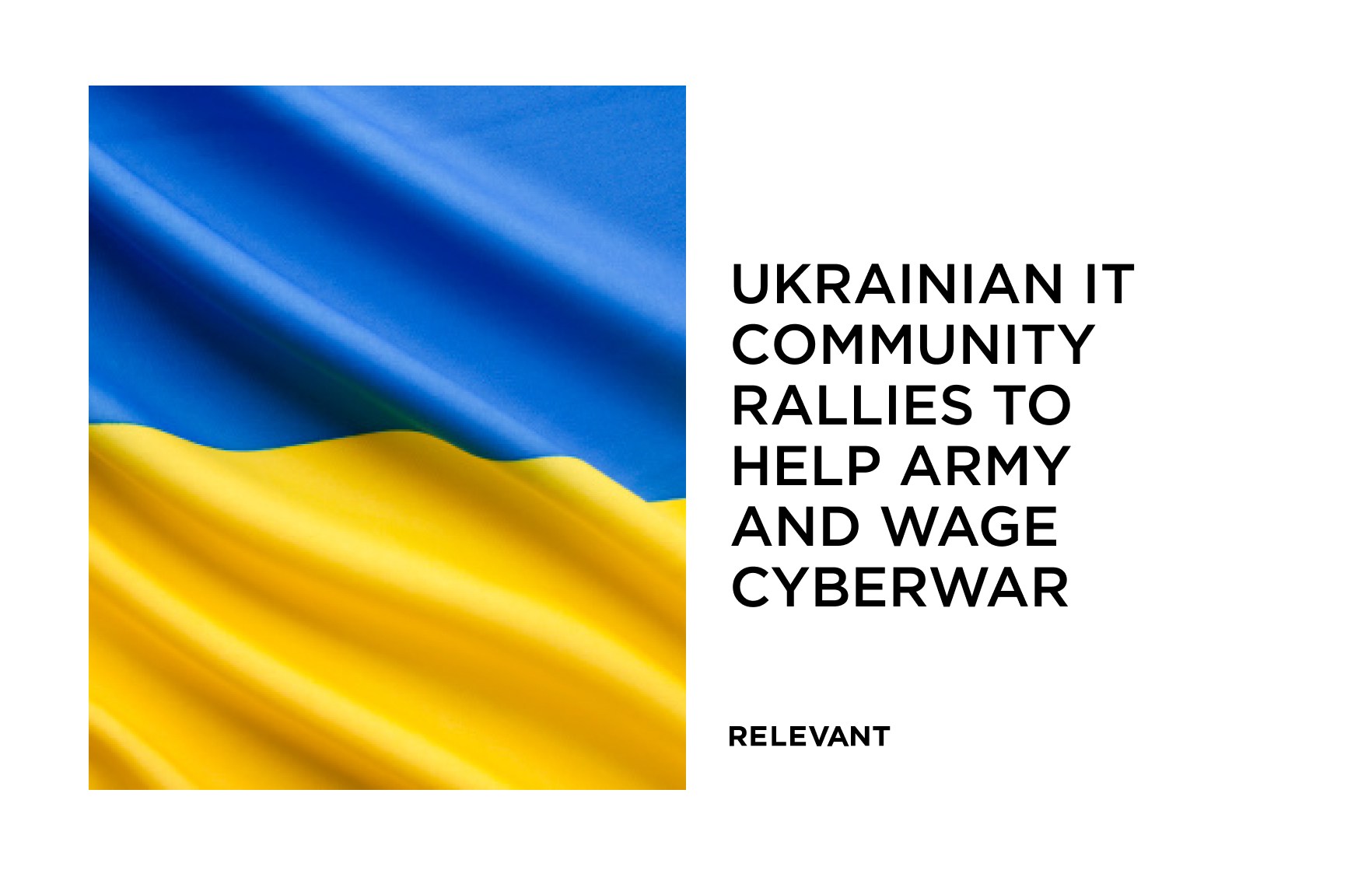
Nobody cares about “business advice” these days. Marketing articles are scrolled through, and literally, no one is interested. And although the businesses of peaceful countries are functioning, as usual, the threat that Putin broadcasted to the entire world made everyone think – “What can I do to stop this?”
The world community quickly reacted to Russia’s aggressive war. Governments of different countries continue to impose sanctions and restrictive measures against the Russian Federation—its companies, officials, and oligarchs. Many technology giants (like Apple, Honda, Nokia, AMD, and Boeing) block the supply of components, goods, and services in Russia.
We provide companies with senior tech talent and product development expertise to build world-class software. Let's talk about how we can help you.
Contact usUkrainian IT companies did not stand aside and watch. The programmers have their weapons – knowledge, which they are ready to use to stop the aggressor, block his military and propaganda actions, and isolate him from the possibility of causing even more harm to Ukraine.
Table of Contents
While the brave Armed Forces of Ukraine defend the country on the battlefield, the Ukrainian IT community accepted the challenge in the rear and began a large-scale fight against the Russian aggressor in cyberspace, lead by Minister of Digital Transformation of Ukraine Mykhailo Fedorov. Indeed, in addition to using all types of lethal weapons, Russia is conducting an information war on the network. It includes numerous fakes, phishing attacks, the refusal of the Russian authorities to acknowledge the attack on Ukraine, and the aim to find out information about movements of the Ukrainian army.
So the volunteers were divided into defensive and offensive cyber units. Defense units stood up to protect important infrastructure. The offensive groups began to “hack” the key online infrastructure of the Russian Federation. Public resources were the first.
For example, the international hacker group Anonymous hacked over 1500 sites belonging to the Russian Federation’s state media & banks and leading banks sites in Belarus. They also downloaded Putin’s henchmen’s private data and put it online, and warned the Russians that they could transfer money from their cards to the Armed Forces of Ukraine.
But Ukraine still needs the help of everyone who specializes in phishing, DDOS attacks, system vulnerability testing, and so on. Here is what the Security Service of Ukraine reported on February 28:
“We’re opening the cyber front! Help Ukrainian cyber warriors hack into the resources of the occupiers. If you notice any vulnerabilities in the cyber defense of Russian objects (backdoors, bugs, logins, and passwords), report them to the @stop_russian_war_bot“.
They recommend paying attention to vulnerabilities in websites, online banking, management systems, computer networks, certification centers, e-mail, keys, instant messengers, and social networks. They also called on everyone to join DDoS attacks on the infrastructure of the Russian Federation. It does not require special skills, only a computer, VPN, and free time.
The large-scale Russian invasion of Ukraine, the aggravation of the situation on the borders, and attacks on Ukrainian cities have united the IT community to support the Armed Forces of Ukraine. Despite the tense situation, the Ukrainian IT industry is trying to continue its work, pay taxes to the state budget, and support the economy in these difficult times.
IT companies are now donating millions of hryvnias to the army through the Come Back Alive charitable foundation, one of the largest foundations in Ukraine that help the Ukrainian military.
Here are the donations made by some of the IT companies that announced them publicly. Besides money, people working in the IT sector donate computers and other equipment to the Territorial Defense and the Armed Forces. This list, as well as the amounts on it, is constantly updated.
In addition, many donations are made in cryptocurrency. Investors worldwide have donated more than $42 million worth of digital assets to the Ukrainian government and a nonprofit supporting the country’s military.
Russian aggression has left thousands of Ukrainians without housing, money, clothing, food, and other basic things to survive. However, they were not left alone with their grief; citizens worldwide actively support them financially. The government opened a special multi-currency account to transfer funds from international partners and donors in foreign currency (US dollars, Euros, British pounds) and Ukrainian businesses and citizens in national currency.
“To streamline the receipt of funds from donors for humanitarian assistance to Ukrainians affected by the war, the National Bank opened an account for the Ministry of Social Policy, which accumulated charitable contributions for social needs in wartime,” said the NBU head, Kyrylo Shevchenko.
The Ministry of Social Policy helps Ukrainians with the collected funds most affected by the war. Namely:
Western Ukraine is currently one of the safest places in our country. Therefore, many hotspots residents, including IT teams, arrived in the city. So the Lviv IT Cluster team works seven days a week to:
The Ukrainian army and people defend their homeland and its values of democracy and freedom. And you, too, can help us restore peace in Europe. There are several ways to do this:
The war has made not only millions of Ukrainians hostages to the Russian regime but also peace. In this situation, unity and support are as important as weapons, sanctions, and an economic blockade of the aggressor state.
And we at Relevant encourage everyone who is in relatively calm regions of the country to keep working despite all the stress. Our heroes are fighting for our peace and must have a broader shoulder that will help them financially by maintaining economic stability in Ukraine. We are holding on!
Слава Україні!
Героям Слава!
What if your bank could complete in minutes what currently requires hours, without adding a…
Forecasting demand has never been more complex—or more critical. Traditional models, constrained by rigid statistical…
Did you know that hospitals generate around 50 petabytes of data each year, including clinical…